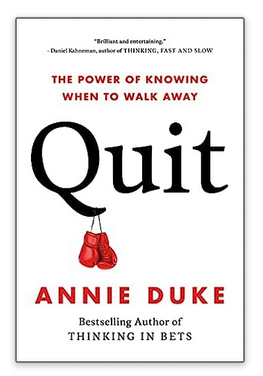Boiled Frog Syndrome is a lie.
The story goes that if you put a frog in scalding hot water it will immediately jump out, but if you put the frog in a pan of cool water on the stove, and gradually raise the temperature it will just sit there and think happy froggy thoughts until it boils to death.
I wondered if that was actually true. Rather than conduct an experiment myself (much to the relief of neighborhood frogs and everyone else, except perhaps my cats), I looked it up. It turns out to be, as Dr. George R. Zug put it (a curator of reptiles and amphibians at the National Museum of Natural History) “bull****”. Frogs jump out of the water when it gets uncomfortably warm.
The Boiled Frog Syndrome metaphor has merit though, even if the story it’s named after doesn’t. It often takes a shock, or at least a nudge, to wake people or organizations up to the fact that their environment has changed or that they have other options.
The Great Resignation is a good case in point. There are as many explanations for that as there are pundits, um, “punning,” ranging from the oversimplified to the philosophical. Liz Elting’s The Incredibly Simple Reason Behind The Great Resignation in Forbes explains it as if it’s a simple matter of more demand (for workers) than supply.
Kim Parker and Juliana Menasce Horowitz of the Pew Research Center said it was because “low pay, a lack of opportunities for advancement and feeling disrespected at work are the top reasons why Americans quit”.
Call me crazy, but I noticed we all just lived through an existential crisis during the pandemic, in which more than a million people around us died (in the United States alone). Could that have been enough of a nudge that many people decided to re-evaluate many things in their lives, including their current jobs?
Change is hard and scary, which is why we put it off.
Annie Duke has just written a whole book on that, called “Quit: The Power Of Knowing When To Walk Away”

It’s a fascinating book. She describes people who spent years preparing for a trip up Everest, only to turn around 30 minutes from the summit — as well as the people who didn’t turn around. Some of them are still there. She writes about how Stuart Butterfield walked away from a successful games company named Glitch — because it wasn’t successful enough — and then turned an internal productivity tool they’d developed into Slack. Seven years later Salesforce bought Slack for $27.8 billion.
I recommend reading Annie Duke’s book, and then shelving it right next to your copy of Angela Duckworth’s Grit: The Power of Passion and Perseverance.

Frogs aren’t as dumb as that old story makes them out to be. Maybe the reason the metaphor resonates so much with us is that we see ourselves in that pan of warming water? We can see the world changing around us, but there are always more than two choices, and always another day to decide.
 “♫ should I stay or should I go? ♪ — The Clash”
“♫ should I stay or should I go? ♪ — The Clash”




 “♫ should I stay or should I go? ♪ — The Clash”
“♫ should I stay or should I go? ♪ — The Clash”


Use the share icon here if you liked it.
Thanks!